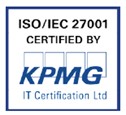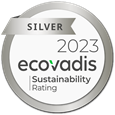Reform of Waste Legislation in Finland – A Step Towards Circular Economy
1 September 2020
Authors: Klaus Metsä-Simola (Specialist Partner) and Sonja Töyrylä (Associate Trainee)
The Finnish Ministry of the Environment is preparing a Government Bill amending the Waste Act (646/2011) and other relevant acts. The main purpose of the reform is to decrease the amount of waste and increase reuse and recycling. The Government Bill will implement the so-called Waste Package, which was adopted in the EU as part of the Circular Economy Package in 2018. Additionally, the Government Bill will implement parts of the Persistent Organic Pollutants (POP) Regulation ((EU) 2019/1021) and the Single Use Plastic (SUP) Directive ((EU) 2019/904). This blog post presents some of the main legislative changes included in the draft version of the Government Bill.
New Targets and Obligations for Recycling and Reuse
The draft Government Bill sets a new target of preparing to reuse or recycle 55% of the municipal waste by 2025 and gradually increases the target to 65% in 2035. The draft Government Bill also increases the recycling target of packaging waste and sets separate recycling targets for different packaging materials. The material-specific targets would be binding on packaging producers and producer corporations.
The draft Government Bill also aims to improve the access to collected waste for the purposes of reuse. For example, professional waste collectors would have to provide corporations and communities with an equal opportunity to obtain waste that can be prepared for reuse.
Changes to Municipal Waste Management and Separate Collection Obligations
The working committee related to the waste legislation reform has recognised the fragmentation of responsibilities and constant changes in the waste legislation as one of the main reasons for the low recycling rate in Finland. To clarify the obligations regarding municipal waste management, all the municipal waste transportation would be centrally organised by the municipalities, meaning that the waste transportation could no longer be organised by the property holder. Simultaneously, the provisions on public contracts on waste transportation would be updated to better ensure the equal participation of small and medium-sized companies.
The draft Government Bill also includes new separate collection obligations for municipalities, waste holders, and producers of packaging. One of the main reforms is that municipalities and producers of packaging should jointly organise the separate collection of packaging waste from households. In practice, this would mean that the municipalities should organise the separate collection and transportation of packaging waste to the reception points of the producers. The producers of packaging would compensate the costs of the separate collection as agreed with the municipalities.
Producer Responsibility
Currently, the producers and importers of certain products, such as electronic devices and batteries, have been obligated to arrange the waste management and recycling of their products. The operators manage this responsibility either independently as a registered producer or by joining a producer corporation. In order to improve the equal treatment of producers and promote fair competition, the draft Government Bill proposes that joining a producer corporation would become compulsory and the producer responsibilities would be extended to more producers. Consequently, certain producers established abroad and small producers of packaging would no longer be exempted from producer responsibilities. The draft Government Bill also aims to simplify the management of producer responsibilities, and therefore it proposes that the producer corporations should coordinate the different producer responsibility sectors and enable the producers to manage all their producer responsibilities through one actor.
Another plan to reform the distribution of responsibility between producers concerns the financial contributions paid by the producers who are part of a producer corporation. When determining the financial contributions, the producer corporations should consider the environmental impact of different products and materials, such as durability, reparability, re-usability and recyclability, and the presence of hazardous substances in individual products or groups of similar products. Producers of long-lasting and easily reparable products could enjoy smaller contributions and producers of products containing hazardous substances would need to pay higher contributions.
Obligations to Obtain and Provide Information
For supervising and reporting purposes, the draft Government Bill proposes new accounting, informing, and reporting obligations for food business operators, waste producers/holders, waste collectors and transporters, waste exporters, and waste management operators. New obligations concern for example waste treatment, prevention and recovery of waste, and waste containing POPs. Furthermore, the draft Government Bill introduces new reporting obligations to the suppliers of articles containing substances of very high concern (SVHC).
The Ministry of the Environment has already begun developing the waste and product information system, since the national information systems need to be substantially expanded. The project will continue for several years, but for instance the register for electronical shipping documents should be ready to use already in 2021.
Conclusions
The Ministry of the Environment has received over 200 opinions and statements on the draft Government Bill. The reform has thus raised a lot of discussion and also conflicting opinions among stakeholders. One aspect that has been especially widely argued in the opinions is the possible consequences of the centralisation of waste transportation to municipalities. Another highly disputed part of the reform has been the jointly organised separate collection of packaging waste. Stakeholders are concerned over the uneven negotiation position of the parties and over what happens if the municipalities and producers cannot come to an agreement regarding the separate collection of packaging waste.
The finalised Government Bill is expected to be presented to the Finnish Government for approval at the beginning of November 2020. If the Finnish Parliament approves the Government Bill during autumn 2020 as planned, all the amendments will enter into force on 1 January 2021.
Our Environment and Natural Resources team is closely following the comprehensive revision of the Waste Act and is happy to answer any related legal questions.






